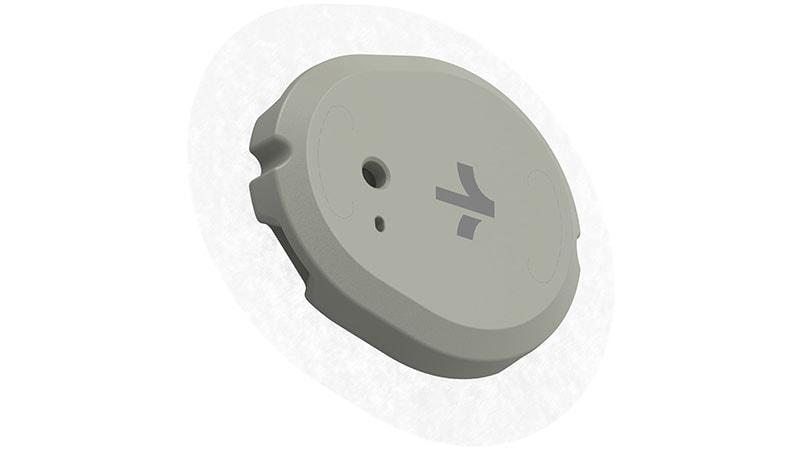Continuous Glucose Monitors: Insights, Limitations, and Opportunities for Personalized Health
Core Concepts
Continuous glucose monitors (CGMs) provide valuable insights into glucose levels, but their accuracy and interpretation require careful consideration for effective diabetes management and preventive healthcare.
Abstract
The content discusses five key points about continuous glucose monitors (CGMs):
CGMs were previously approved only for people with type 1 or type 2 diabetes, but the recent FDA approval of the Dexcom Stelo Glucose Biosensor System allows anyone to purchase a CGM without a prescription. There are four major CGM devices currently available in the US: Medtronic, Dexcom, FreeStyle Libre, and Eversense.
CGMs provide an estimate of blood glucose levels by measuring the glucose concentration in the interstitial fluid, which can lead to inaccuracies. The accuracy of CGMs is measured by the "mean absolute relative difference" (MARD), with the current industry best being the Dexcom G7 at around 8%. Factors like sensor location, wear duration, glucose stability, and extreme glucose levels can affect the accuracy.
The greatest benefit of CGMs is the information they provide on how behaviors, such as nutrition and physical activity, affect glucose levels. Patients who pay attention to these patterns can better optimize their glucose control.
While CGMs provide valuable nutritional feedback, food is not the only determinant of health. Healthcare professionals consider other factors, such as blood pressure and lipids, to develop a comprehensive understanding of a patient's overall health status and disease risk.
The recent over-the-counter availability of CGMs increases access to this powerful tool, but individuals must educate themselves on the limitations of CGMs and seek professional guidance when needed. Observing glucose patterns without proper context can lead to unnecessary anxiety or provide valuable insights into a person's unique "glucotype."
5 Things to Know About Continuous Glucose Monitors
Stats
Dexcom G7 has a MARD around 8%, which is the current industry best.
Adding a CGM to a patient's diabetes management can reduce A1c by about 1%.
Quotes
"CGMs provide only an estimate of blood glucose. They do not measure it directly the way glucometers or lab tests do."
"The greatest clinical benefit of CGMs is the information they provide patients on how behaviors (eg, nutrition, physical activity) affect their glucose levels."
"Researchers, too, recognize that other inputs (eg, microbiome, anthropometrics) are necessary for more accurate risk stratification."
Key Insights Distilled From
by Beverly at www.medscape.com 04-05-2024
https://www.medscape.com/viewarticle/5-things-know-about-continuous-glucose-monitors-2024a100064a
Deeper Inquiries
How can healthcare professionals and researchers leverage the wealth of data from CGMs to develop more personalized and effective preventive healthcare strategies?
Healthcare professionals and researchers can leverage the data from CGMs to develop personalized and effective preventive healthcare strategies by utilizing the detailed information provided by these devices. CGMs offer real-time data on glucose levels, allowing for a deeper understanding of how various factors such as diet, exercise, and medication impact an individual's blood sugar. By analyzing this data over time, healthcare professionals can identify patterns, trends, and potential risk factors specific to each patient. This personalized approach enables the development of tailored interventions and treatment plans that address the unique needs of the individual, leading to better health outcomes and improved preventive care.
What are the potential ethical and privacy concerns associated with the widespread adoption of over-the-counter CGMs, and how can they be addressed?
The widespread adoption of over-the-counter CGMs raises potential ethical and privacy concerns related to data security, consent, and misuse of personal health information. One major concern is the unauthorized access to sensitive health data collected by these devices, which could lead to breaches of privacy and confidentiality. Additionally, there is a risk of data being used for purposes other than healthcare without the individual's consent, such as targeted advertising or discrimination based on health status.
To address these concerns, it is essential to implement robust data security measures to protect the confidentiality and integrity of the information collected by CGMs. This includes encryption, secure data storage, and access controls to prevent unauthorized use. Furthermore, clear guidelines on data sharing and consent should be established to ensure that individuals have control over how their health data is used and shared. Healthcare providers and manufacturers of CGMs must prioritize transparency and accountability in handling patient data to maintain trust and safeguard privacy.
How might the integration of CGM data with other biometric and lifestyle data sources, such as wearable devices and mobile apps, lead to a more holistic understanding of an individual's health and well-being?
The integration of CGM data with other biometric and lifestyle data sources, such as wearable devices and mobile apps, can lead to a more holistic understanding of an individual's health and well-being by providing a comprehensive view of their overall health status. By combining data from CGMs with metrics like heart rate, activity levels, sleep patterns, and nutrition, healthcare professionals can gain insights into how various factors interact and impact an individual's health outcomes.
This integrated approach enables a more personalized and proactive healthcare strategy that takes into account the interconnected nature of different health indicators. For example, by correlating glucose levels with physical activity or sleep quality, healthcare providers can identify patterns that may influence blood sugar control and make targeted recommendations for lifestyle modifications or treatment adjustments. Ultimately, the integration of CGM data with other sources allows for a more tailored and effective approach to managing health and promoting well-being.
0
